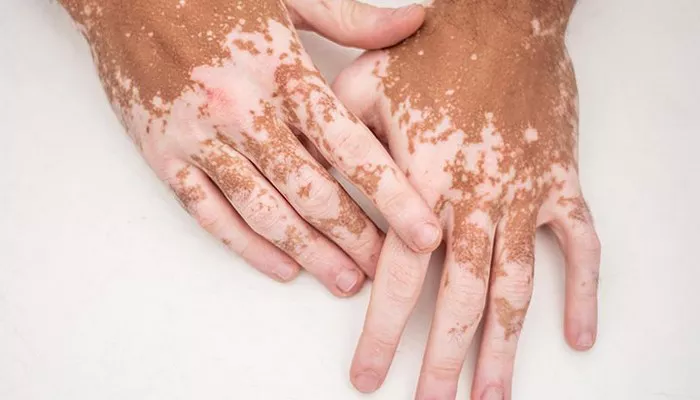Vitiligo, a chronic skin condition characterized by the loss of pigmentation, affects millions worldwide, impacting not only physical appearance but also psychological well-being. As research delves deeper into its causes and potential treatments, a question that often arises is whether glutathione, a powerful antioxidant, plays a role in the development or exacerbation of vitiligo. Understanding the relationship between glutathione and vitiligo is crucial for individuals seeking effective management strategies and for healthcare professionals striving to provide comprehensive care. In this article, we explore the scientific evidence surrounding the connection between glutathione and vitiligo, shedding light on the complexities of this dermatological condition.
What is Glutathione?
Before delving into the discussion of its potential impact on vitiligo, it’s essential to understand what glutathione is and its physiological significance. Glutathione is a tripeptide molecule composed of three amino acids: glutamate, cysteine, and glycine. It serves as one of the body’s most potent antioxidants, playing a vital role in neutralizing free radicals and detoxifying harmful substances. Beyond its antioxidant properties, glutathione is involved in various cellular processes, including DNA synthesis, protein synthesis, and immune response regulation.
The Role of Glutathione in Vitiligo
The relationship between glutathione and vitiligo is complex and multifaceted. While some anecdotal reports and preliminary studies have suggested a potential association between glutathione and vitiligo, the scientific evidence remains inconclusive. Several mechanisms have been proposed to explain how glutathione may influence the development or progression of vitiligo:
1. Oxidative Stress:
Oxidative stress, characterized by an imbalance between free radicals and antioxidants in the body, is believed to contribute to the pathogenesis of vitiligo. Glutathione plays a crucial role in combating oxidative stress by neutralizing free radicals and protecting cells from damage. However, some studies have suggested that individuals with vitiligo may have lower levels of glutathione or impaired antioxidant defense mechanisms, potentially exacerbating oxidative damage to melanocytes—the cells responsible for producing pigment in the skin.
2. Immune Dysregulation:
Vitiligo is considered an autoimmune disorder, wherein the body’s immune system mistakenly targets and destroys melanocytes. Glutathione plays a vital role in modulating immune responses, and alterations in glutathione levels or function could potentially contribute to immune dysregulation observed in vitiligo. Some researchers have proposed that enhancing glutathione levels or supplementation could help regulate immune function and mitigate the autoimmune processes underlying vitiligo.
3. Toxicity and Side Effects:
Glutathione is available in various forms as a dietary supplement, intravenous infusion, or topical cream. While glutathione supplementation is widely promoted for its antioxidant and skin-lightening properties, the safety and efficacy of these products remain controversial. High doses of glutathione or prolonged use may lead to adverse effects, including gastrointestinal disturbances, allergic reactions, and even paradoxical skin darkening. Individuals with vitiligo may be particularly vulnerable to these side effects, potentially exacerbating their skin condition.
The Controversy Surrounding Glutathione Supplementation in Vitiligo
The use of glutathione supplementation as a treatment for vitiligo has gained popularity in recent years, fueled by marketing claims and anecdotal reports of its efficacy. However, the scientific evidence supporting the use of glutathione for vitiligo remains limited and inconclusive. Clinical trials evaluating the effectiveness of glutathione supplementation in vitiligo have yielded mixed results, with some studies reporting modest improvements in pigmentation and others showing no significant benefit.
One of the major challenges in assessing the efficacy of glutathione supplementation in vitiligo is the lack of standardized protocols and dosing regimens. Different studies have used varying doses of glutathione, administration routes, and treatment durations, making it difficult to draw definitive conclusions about its effectiveness. Moreover, the heterogeneity of vitiligo itself, including factors such as disease severity, duration, and patient demographics, further complicates the interpretation of study findings.
Clinical Considerations and Recommendations
While the potential role of glutathione in vitiligo continues to be a topic of interest and debate, several clinical considerations and recommendations emerge:
1. Consultation with Healthcare Professionals:
Individuals considering glutathione supplementation for vitiligo should consult with qualified healthcare professionals, including dermatologists or immunologists, who can provide personalized advice based on their medical history, current treatment regimen, and individual needs.
2. Evidence-Based Therapies:
Given the limited scientific evidence
supporting the use of glutathione for vitiligo, patients are encouraged to prioritize evidence-based therapies with proven efficacy and safety profiles. This may include topical corticosteroids, phototherapy, and immunomodulatory agents, among others.
3. Healthy Lifestyle Practices:
Maintaining a healthy lifestyle, including a balanced diet, regular exercise, and adequate sleep, can help support overall skin health and may complement conventional vitiligo treatments. While dietary sources of glutathione, such as fruits, vegetables, and lean proteins, may contribute to antioxidant status, there is currently insufficient evidence to support the use of glutathione supplements for vitiligo management.
4. Monitoring for Adverse Effects:
Individuals using glutathione supplements should be vigilant for any adverse effects or skin reactions and promptly report them to their healthcare providers. Monitoring for potential side effects is essential, particularly given the lack of long-term safety data on glutathione supplementation.
Conclusion
In conclusion, the relationship between glutathione and vitiligo remains a subject of ongoing research and debate. While glutathione plays a crucial role in antioxidant defense and immune regulation, its specific involvement in the pathogenesis or management of vitiligo remains uncertain. Although glutathione supplementation has been promoted for its potential skin-lightening and antioxidant properties, the scientific evidence supporting its use in vitiligo is limited and inconclusive. Individuals with vitiligo are encouraged to seek guidance from healthcare professionals and prioritize evidence-based therapies to effectively manage their condition while minimizing potential risks. As research continues to advance, further insights into the role of glutathione in vitiligo may emerge, potentially paving the way for novel treatment strategies and improved patient outcomes.


























